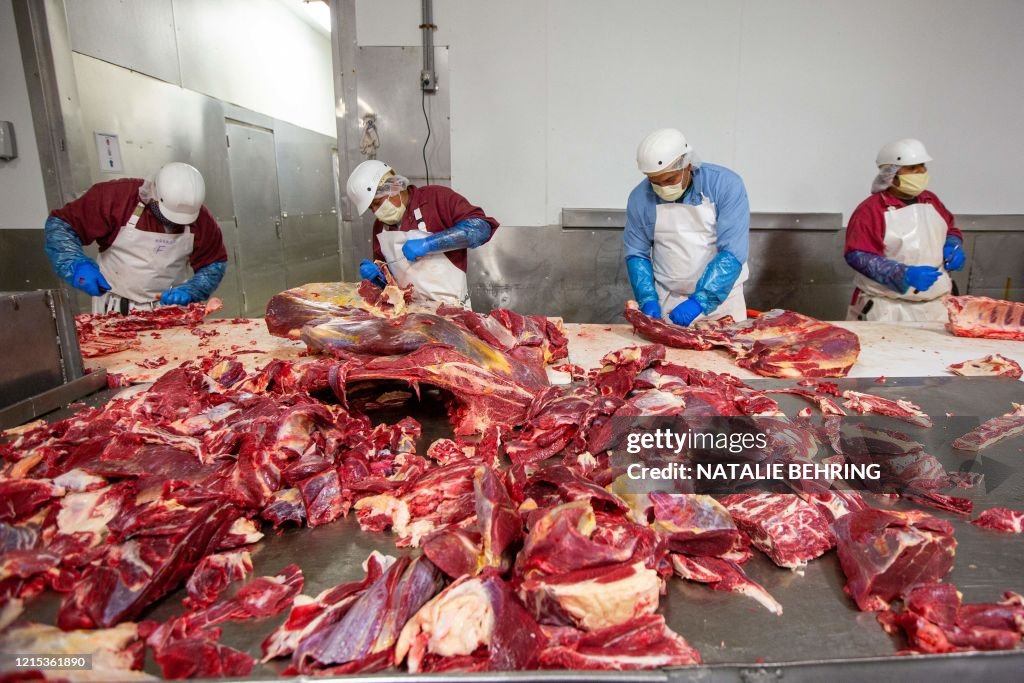US-HEALTH-VIRUS-FOOD-MEAT
Butchers chop up beef at Jones Meat & Food Services in Rigby, Idaho, May 26, 2020. As coronavirus clusters in slaughterhouses around the world continue to multiply, health experts are calling for better virus monitoring to prevent further infection. Slaughterhouses are shutting down across the United States after thousands of cases were confirmed. Four managers responsible for ensuring social distancing barriers have died. The Centers for Disease Control (CDC) estimated that at least 5,000 meat and poultry workers have contracted the virus in the US alone.
Local meat processors are swamped with orders in the wake of the closing and interruptions of large packing houses caused by the COVID-19 virus.
Owner Brent Jones says his business is three or four times busier than normal with his employees processing up to 100 cows a week. Local demand for meat is very high, but the cost of hamburger is what used to be the price of steak. To bypass the high prices and shortages, locals buy animals from ranchers and farmers and have local butchers kill and process an entire cow of pig, then store the meat in freezers. (Photo by Natalie Behring / AFP) (Photo by NATALIE BEHRING/AFP via Getty Images)

PURCHASE A LICENCE
How can I use this image?
£375.00
GBP
DETAILS
Restrictions:
Contact your local office for all commercial or promotional uses. Full editorial rights UK, US, Ireland, Italy, Spain, Canada (not Quebec). Restricted editorial rights elsewhere, please call local office.
Credit:
Editorial #:
1215361890
Collection:
AFP
Date created:
26 May, 2020
Upload date:
Licence type:
Release info:
Not released. More information
Source:
AFP
Barcode:
AFP
Object name:
AFP_1SC182
Max file size:
5357 x 3571 px (45.36 x 30.23 cm) - 300 dpi - 8 MB